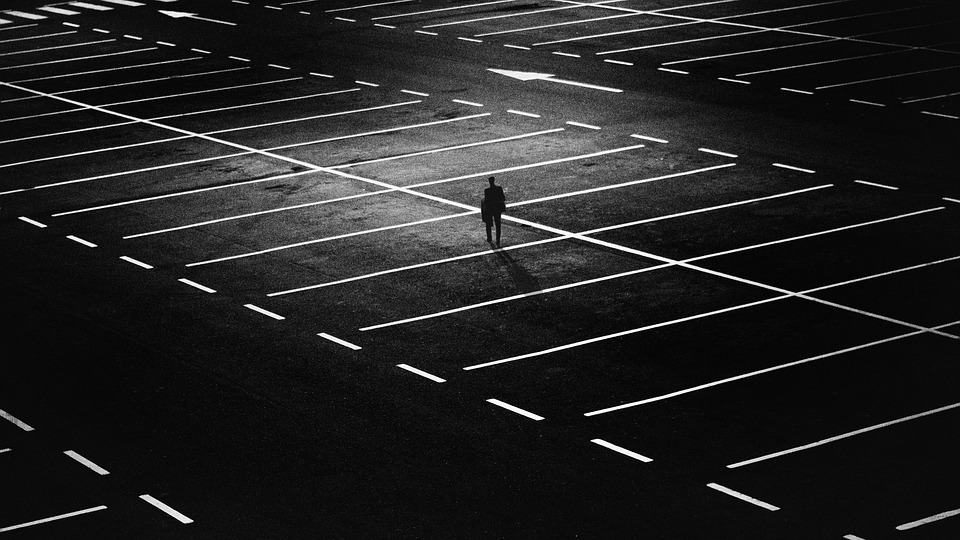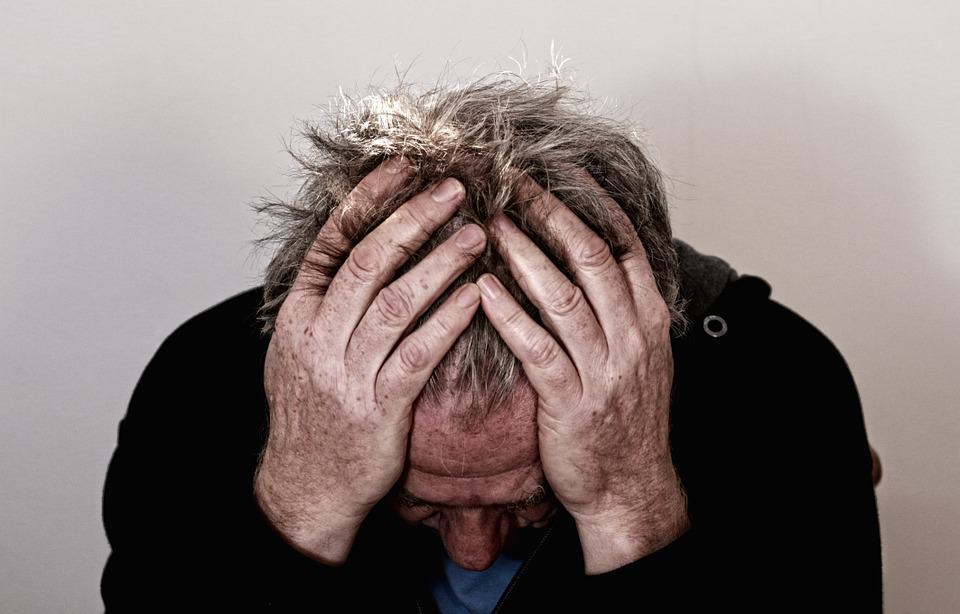Becoming a digital nomad is an exciting thing but many nomads find that this life quickly becomes a drag. You see without careful management; digital nomad life can take a severe toll on your mental health.
Worse, when you live and work in places that aren’t your home it can be challenging, if not impossible to access mental health care. That means you have to take responsibility for your mental health as a digital nomad and act when warning signs, that things aren’t going well, arise.
Let’s take a look at some common complaints from digital nomads regarding their mental wellbeing and let’s take a look at what you can do to try and combat their effects.

Table of Contents
A Brief Interlude: Pre-Existing Conditions

I have suffered from clinical anxiety almost all my adult life. I was given a brief period of drug therapy to help me come to terms with my condition and to help me learn to manage it.
I still suffer from anxiety. It will never go away but, in the main, I have learned to cope with it and digital nomad life does not adversely affect this condition.
Sadly, this is not the case for many other digital nomads. Traveling and working for your life is not a cure for any mental health condition. If you have pre-existing conditions you should discuss them with a mental health professional before you leave home.
Anxiety, depression, addiction, loneliness, etc. can all be made worse by the stress of learning to travel and work at the same time particularly if you bite off more than you can chew (a common newbie nomad mistake).
By speaking to your physician, you can help devise strategies to minimize the impact of your new lifestyle on your mental health. It won’t take long. Your doctor won’t forbid you to go (and can’t). But they can often give you insight into the day-to-day care of yourself and long-term and emergency care too.
The Most Common Digital Nomad Mental Health Problems

Now, let’s turn out eyes to the most common mental health issues facing digital nomads and what you can do about each of them.
- Digital nomads rarely feel “settled” and this can be distressing.
- No surprises, long periods of solo travel can leave you feeling isolated.
- Leaving home doesn’t always mean leaving the pressures from back home behind, for example.
- Working and traveling too much can lead to burnout.
- Both travel and work can trigger anxiety and when you combine the two, you increase the odds.
- Poor physical habits. Our physical habits can influence our mental health.
- Smoking, drink, drugs, casual sex, and problem gambling can all flourish on the road.
How To Handle Impermanence As A Digital Nomad

It is fair to say that the life of a digital nomad is by definition: impermanent. You’re not staying in one place, you’re moving from one to the next and even when you return to a location, it’s very often “markedly different” from the last visit.
For an example of this, the first time I came to Hanoi in Vietnam I deeply disliked it. It was a serious tourist trap and scams were everywhere. Fast forward a few years and on my return, I found a city that I loved, it had cleaned up its act and it felt vibrant and thriving, by contrast.
Much of our feeling of “impermanence” is wrapped up in “culture shock” which is a very real phenomenon. Hanoi probably hasn’t changed very much but on my first visit I picked up all the similarities with China, a place I had only recently escaped and had been really unhappy in and transferred all the negative emotion from one place to another.
My next visit didn’t have my lugging all that emotional baggage with me and it was better.
There are only a few ways to deal with this feeling:
- Acknowledge it and embrace it. You are not required to live a life of permanence, but it is the ideal you would have been sold when you were younger. You can embrace the feeling of impermanence and come to enjoy it.
- Move on when things get too much. If you don’t feel right somewhere, you can leave – that’s the joy of being a digital nomad, you don’t have to stick around if you don’t want to. Get to Chiang Mai and loathe it? Jump a bus to Vientiane, a plane to Hong Kong, or wherever… move on.
- Go home. You don’t have to go home forever but impermanence is often wrapped up in homesickness. Going home can help you remember why you chose to travel in the first place, or it can make you realize that you’re happier at home. There’s nothing wrong with that.
You can also find other people to talk to about your feelings, but they may not be able to relate to your distress. Be aware that digital nomad life isn’t terribly easy to understand from the outside looking in and you may come across as ungrateful (which isn’t fair but is the way it can look to others).
How To Handle Loneliness As A Digital Nomad

Friendships are essential to human happiness. It can be harder to find friends on the road than it is at home. However, it is worth noting that in the 1980s the average American had 4 or more friends they felt that they could turn to and discuss the important things in their life and that now, the average American has nobody they can turn to.
Loneliness at home and abroad almost certainly comes from 2 things:
- A failure to adopt the social skills necessary to build friendships. Many people seem to be very good at trivial interactions but lack the interest in others to make friends. Dale Carnegie’s “How to win friends and influence people” is a classic text on this subject – if you’re not good at making friends, you need to learn how.
- A failure to look up from your screens. Digital nomads need to become less “digital”. Friendships occur in a space away from screens. You cannot form relationships when all or part of your attention is waiting for that next adrenaline/dopamine buzz from a phone notification. Your phone is not your friend. Put it away.
Follow these two rules, however, and it’s pretty easy to make friends on the road. It is even easier still if you follow this final rule: travel slowly. Nobody needs a friend who is only in their life for 2 days. Spend time in a place and you can make friends, otherwise, you’re just another tourist passing through.
How To Handle Pressure As A Digital Nomad

There comes a time in everyone’s life where they need to make a decision: is this your life you are living or are you living it for someone else?
External pressure causes stress but only if we allow it to. Sure, it might be a drag that every time you speak to your mom she says; “When are you coming home to get a real job?”
Or that your employer says; “You know it would be so much easier if you were just back in the office.”
But this is only true if you allow this to happen over and over again (moments of exasperation aside – everybody, including moms and employers, is allowed a bad day every now and again).
There comes a time when you need to take a firm line.
“Mom, I am sorry, but this is my life now. I need you to accept that. I don’t want to feel guilty and pressured every time that I speak to you. So, please stop asking.”
With your employer, the truth is that if this goes on for a long period of time, they’re going to start looking to replace you if they feel your presence is required all the time.
This means you might want to look for another job, to seek freelance work, etc.
Facing down pressure as a digital nomad means becoming realistic about the source of the pressure and what you really want. Then communicate that or act to make it happen.
You don’t need to feel miserable every day unless you want to.
How To Handle Burnout As A Digital Nomad

Don’t handle burnout. Prevent it. Seriously, you are under no obligation to work 80 hours a week and move towns every other week.
You need to take care of yourself as a priority. That means – a normal workweek, longer stays in places (you’re not on a backpacking vacation, stop acting like you are) and a solid work and private life routine.
I burned out twice during corporate life. Once was the day after I quit a job in which I’d worked 12-14 hour days, 7 days a week for more than 2 years. I didn’t get out of bed for 3 weeks. I swore that I’d never do it again.
Then, I had my first heart attack at the age of 34 when I’d reached the pinnacle of my profession in industry in an international setting. It wasn’t worth it.
Now, I make time for me. I actively seek to reduce stress and minimize work in my life. I’m not lazy – I still work harder than almost everyone else I know but there is a hard limit to what I do, when I reach that, I stop.
As for travel? We rarely spend less than 1-2 months in a destination and most of the time 6-12 months is more like it. I am never going to see the whole world and that’s fine by me; I’ve seen a lot of it and my experiences are deeper than those who’ve rushed from country-to-country. That’s my freedom to choose the life I want.
How To Handle Anxiety And Depression As A Digital Nomad

The two biggest mental health problems of the modern era are depression and anxiety and they often go hand-in-hand which is why we’re going to tackle them together here.
Firstly, let’s acknowledge that both these conditions can be extremely debilitating. However, you don’t have the option to just switch off and just let the clock run down when you’re away from your support base – you need to take action when you feel depression and/or anxiety knocking on your digital nomad door.
Symptoms of anxiety include: excessive worrying (that is for long periods of time and you should find it very difficult to control), agitation (racing pulse, sweaty palms, etc.), restlessness (the urge to move), fatigue (extreme, chronic tiredness), difficulty concentrating, irritability (excessive – it’s normal to be irritated by bad drivers, for example), tense muscles, sleep disorders (too much/too little), panic attacks (well, duh), social phobia (avoiding others), and irrational fears (that’s pretty much all fear).
It’s worth noting that massage therapy has been shown to be very good for anxiety (in fact, on a par with cognitive behavioral therapy [CBT]). Massages are cheap in South East Asia, it’s worth a try, right?
Symptoms of depression include hopeless outlook (feeling like nothing will ever be OK), lost interest (in something you once loved), fatigue, sleep disorders, anxiety, irritability, changes in appetite and weight, emotional outbursts, and thinking about death on a regular basis.
Yes, anxiety can be a symptom of depression which is why we tackle them together here.
Now, let’s be clear about one thing. If you are having suicidal thoughts: Stop right now and call the Samaritans or send them an e-mail. We promise you that you would be missed and that you have real value as a human being and that any mistakes you may have made are not the end of the world, even if they feel that way now. Seek help. Please.
Now, let’s take a look at how you can reduce anxiety and depression without medication:
- Change your diet. The healthier your diet, the better you will feel.
- Change your exercise regime. The more you exercise the harder it is to be depressed or anxious.
- Cut down on caffeine. Too much caffeine can fool your body into similar symptoms as anxiety.
- Get rid of the alcohol. Alcohol is a depressant. No surprises that the more you drink the worse things become.
- Quit smoking. Doesn’t every health piece include this advice? Yes, but it’s still true the smoking can trigger anxiety. For the record, I quit cold turkey three years ago. I went from 60-80 a day to none. You can do it and you can do it as a digital nomad.
- Start meditating. There’s a lot of evidence that supports meditation as a way to reduce depression and anxiety. Given that it’s fairly easy to learn and completely free – you don’t have anything to lose by giving it a go.
- Try yoga. The evidence here is a lot less tangible than for meditation but some preliminary evidence suggests yoga may help with anxiety. It’s also a form of exercise and if you’re in South East Asia, there are going to be classes every 100 yards away from your home too.
- Get a sense of community. Join clubs and societies. Volunteer for charitable projects. Connecting to something bigger than ourselves can greatly decrease depression and anxiety.
- Stop with the social media. Social media usage is very much linked to depression and anxiety, comparing your life to the fake-perfect lives of others can be really demoralizing. As can the need for other people to validate you. You’re awesome. You don’t need that.
- Find a sense of purpose. What’s your reason for getting up in the morning? Figuring that out can make you feel massively better.
Finally, on anxiety and depression if you try everything above and still feel terrible – you need to seek help. That means qualified professional help and if that means going back to your own country to get that help – do it.
No-one is entitled to a happy life but at the same time, nobody needs to live in a pit of anxious despair either. Sometimes, drug therapy and counseling is the best way to move forward. There is no shame in admitting you need help and then seeking it. I did when my anxiety overwhelmed me.
How To Deal With Poor Physical Habits As A Digital Nomad

By this we mean you’ve got to eat right, you’ve got to exercise right, and you have to sleep right. Not only can these two things have a massive impact on depression and anxiety, but they can make a huge difference in nearly every area of your health and wellbeing.
We recommend that you set aside 10 hours of the day, just for you and spend them as follows:
- 8 full hours of sleep
- 30 minutes of continuous exercise (doesn’t need to be too intense – go for a long walk, that’s fine)
- 30 minutes of meditation (seriously, it works for your mental health and drives your sense of purpose too)
- 1 hour to prepare your own meals that represent a balanced diet with sufficient calories
The biggest challenge is eating right. However, as long as you have a microwave, you can cook meat, veggies, eggs, etc. and take care of your diet. It’s not much fun we admit living out of a microwave but it’s better than living on McD’s.
How To Deal With Addiction As A Digital Nomad

Some addictions can be broken with willpower alone. I quit smoking; I should know. But most cannot.
Most addictions require professional medical support to bring them to an end. Long-term alcoholics and long-term drug addicts can die from going cold turkey. This is not an exaggeration.
If you suffer from an addiction, we’d suggest that you seek help from an agency or organization specifically experience in helping addicts recover.
We’d strongly recommend that you do this prior to getting on a plane. In our experience, digital nomads with addictions rarely break them or get better on their own on the road.
We wish you well with this. It’s hard to break any addiction but it is worth it. Mainly, because you are worth it.
Conclusion

Digital nomad life can be awesome, but it can also take a toll on your mental health. If you want life to be awesome, you have to accept responsibility for your own care. That means making time for your mental health and acting when you see the warning signs that something is not right.
